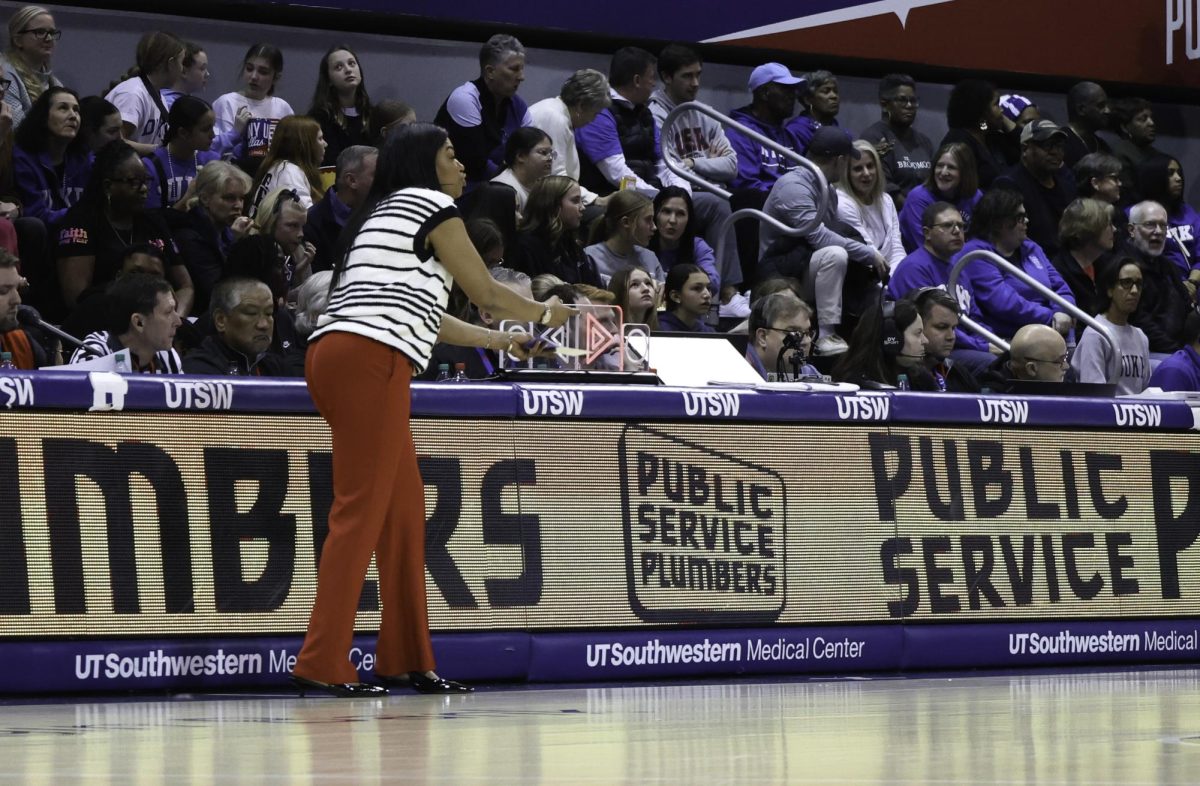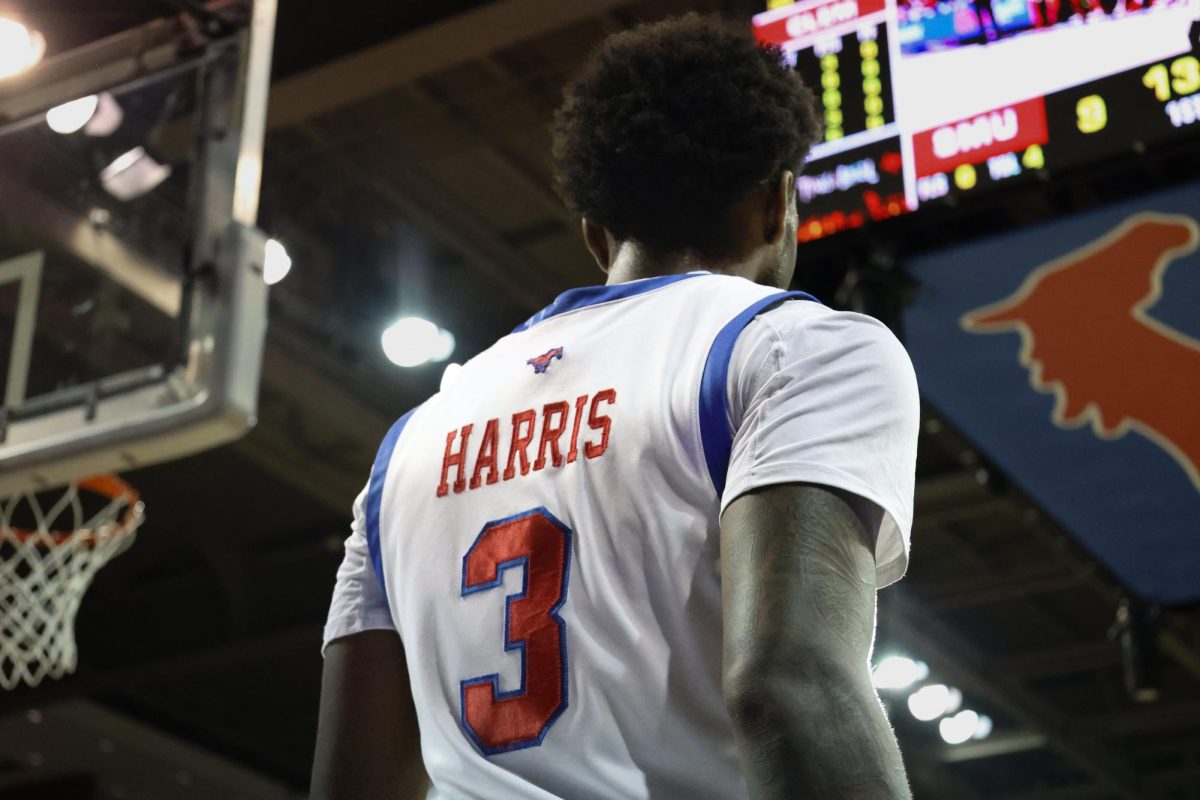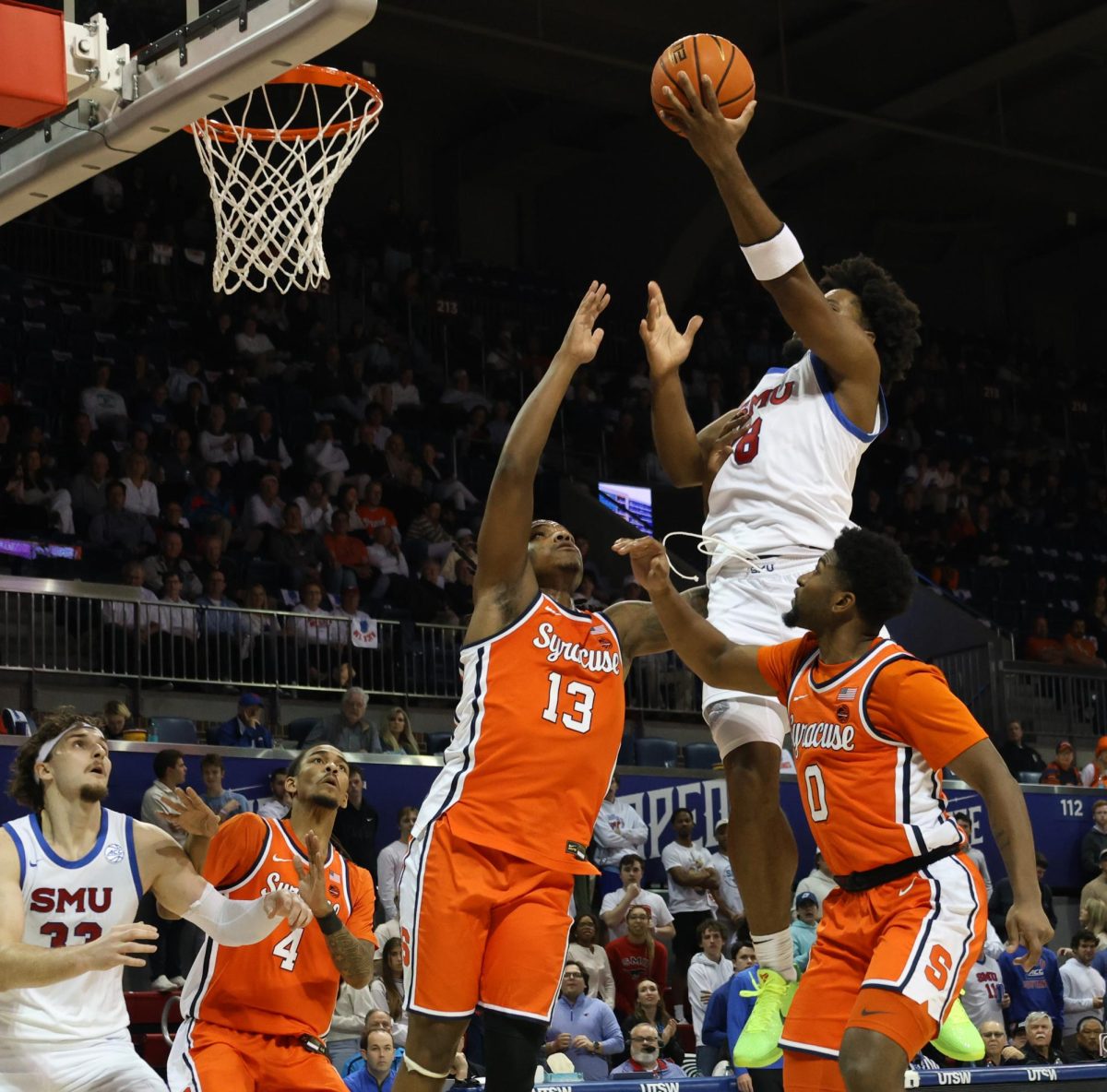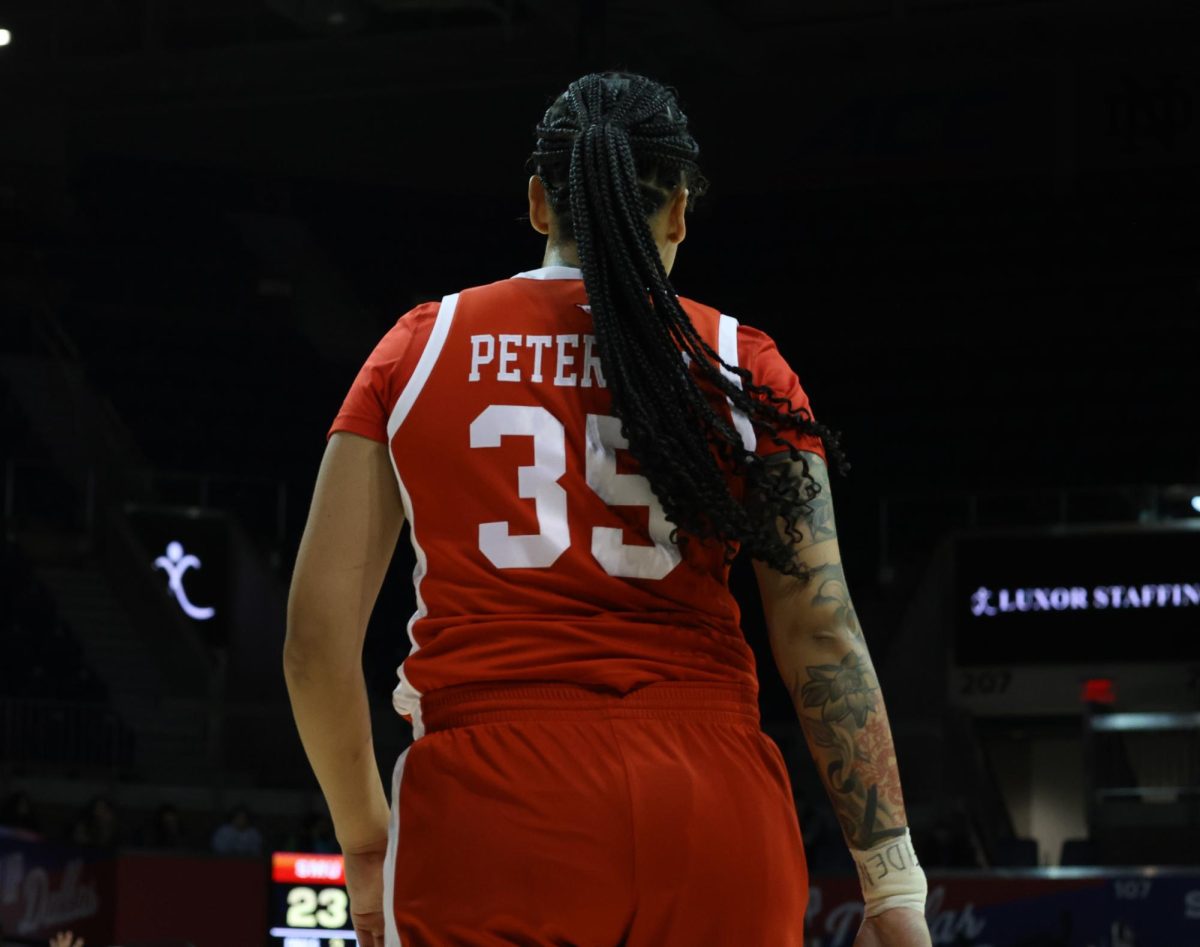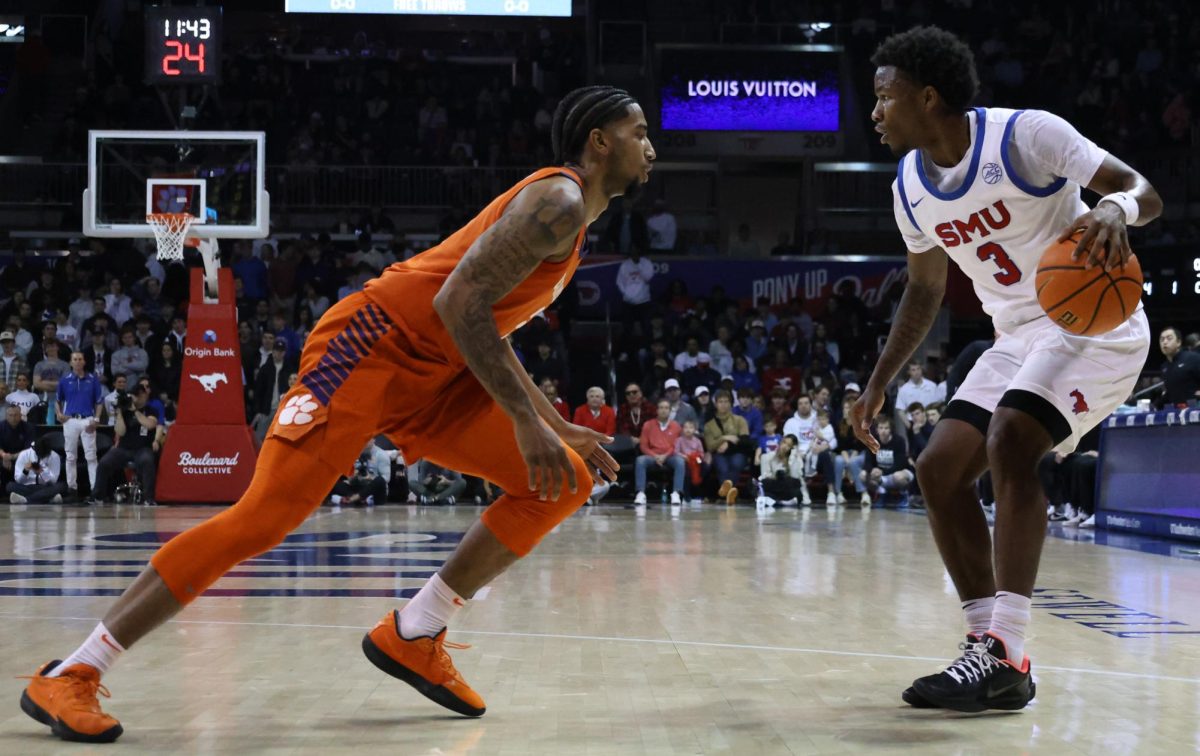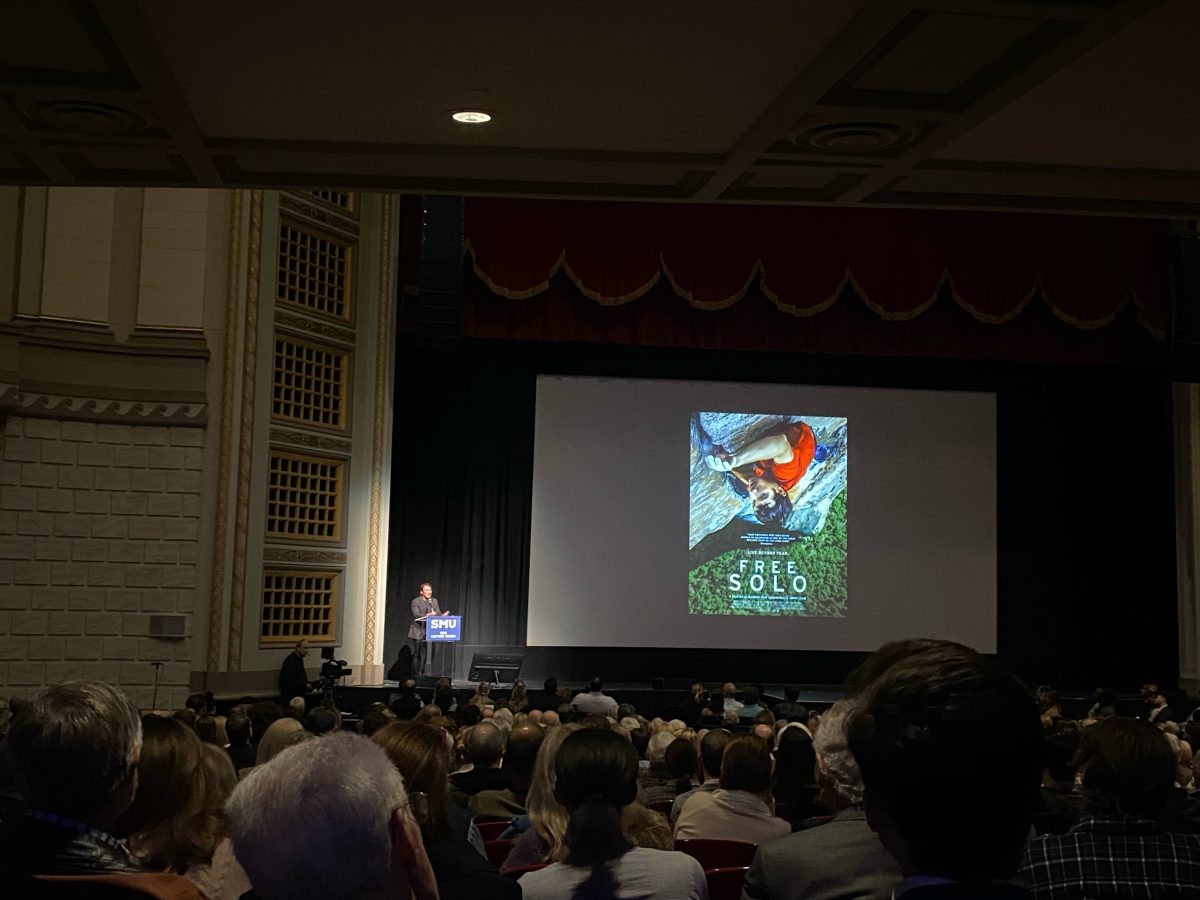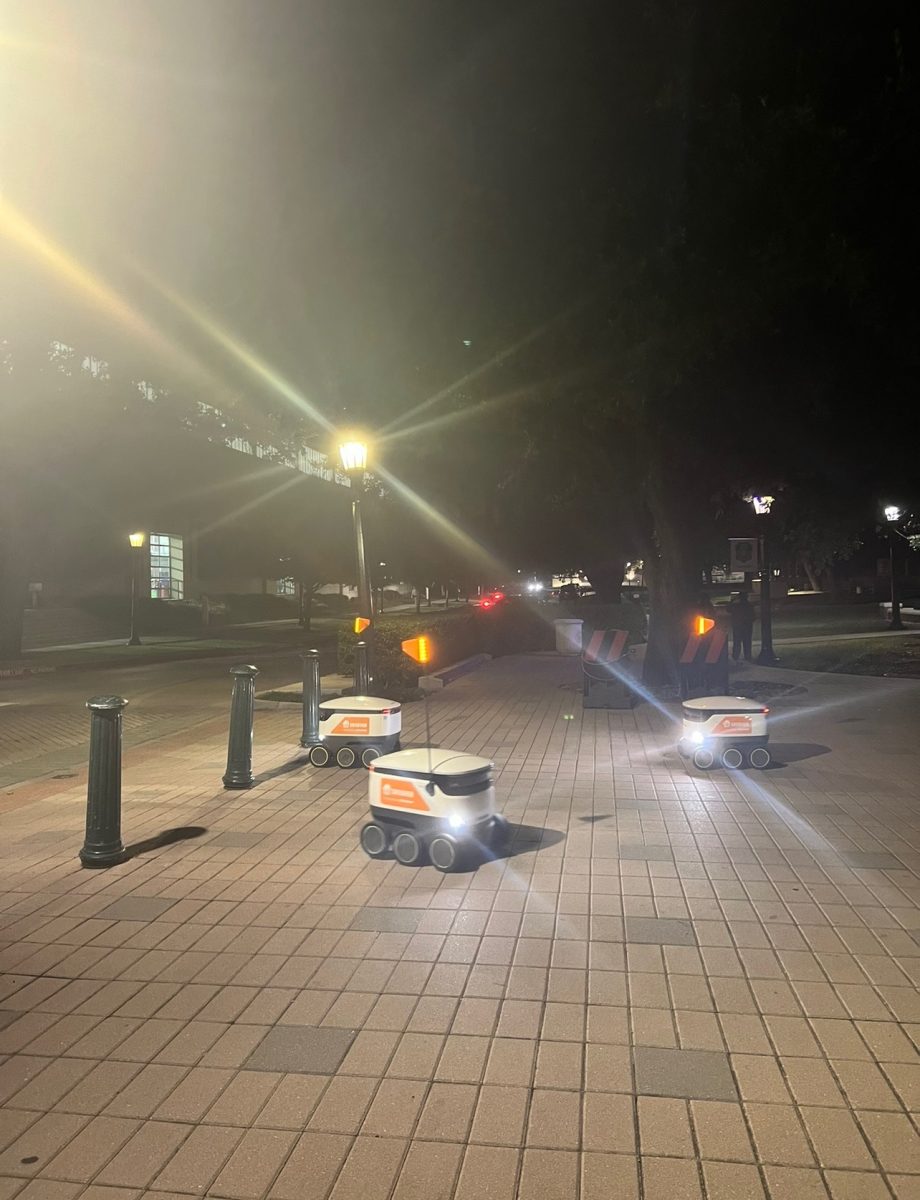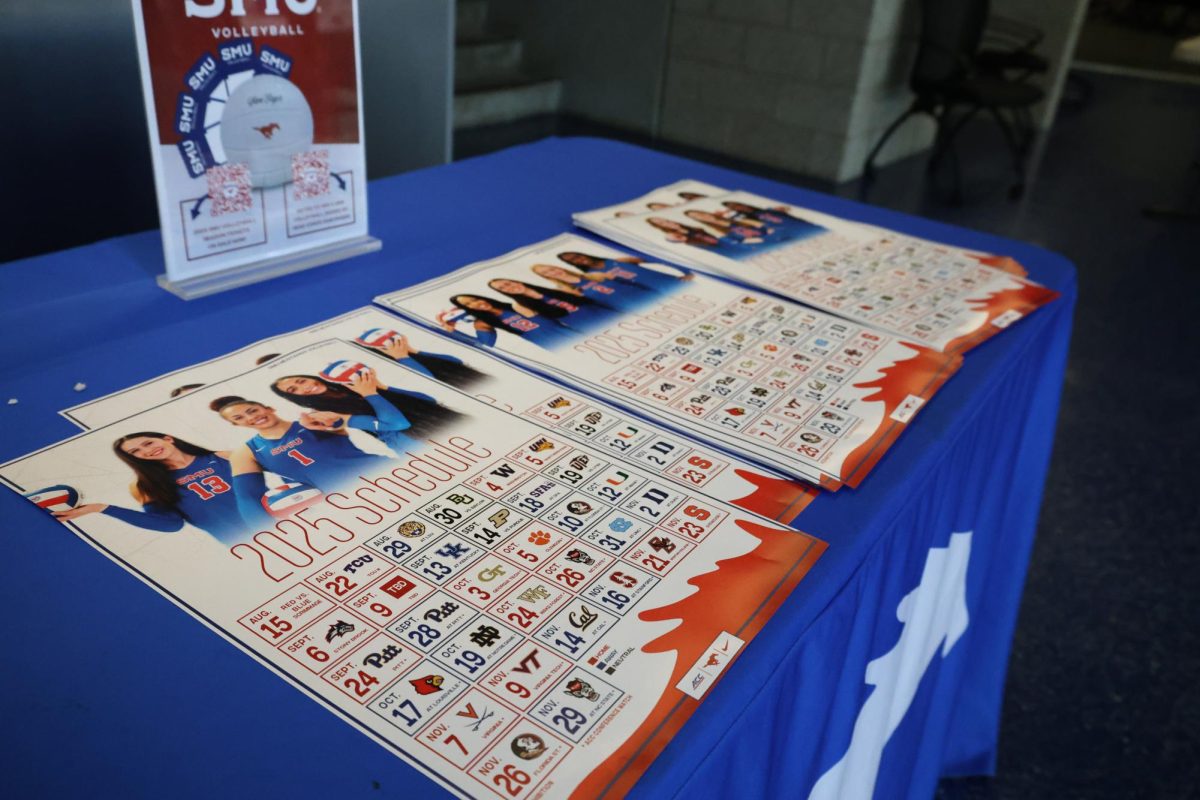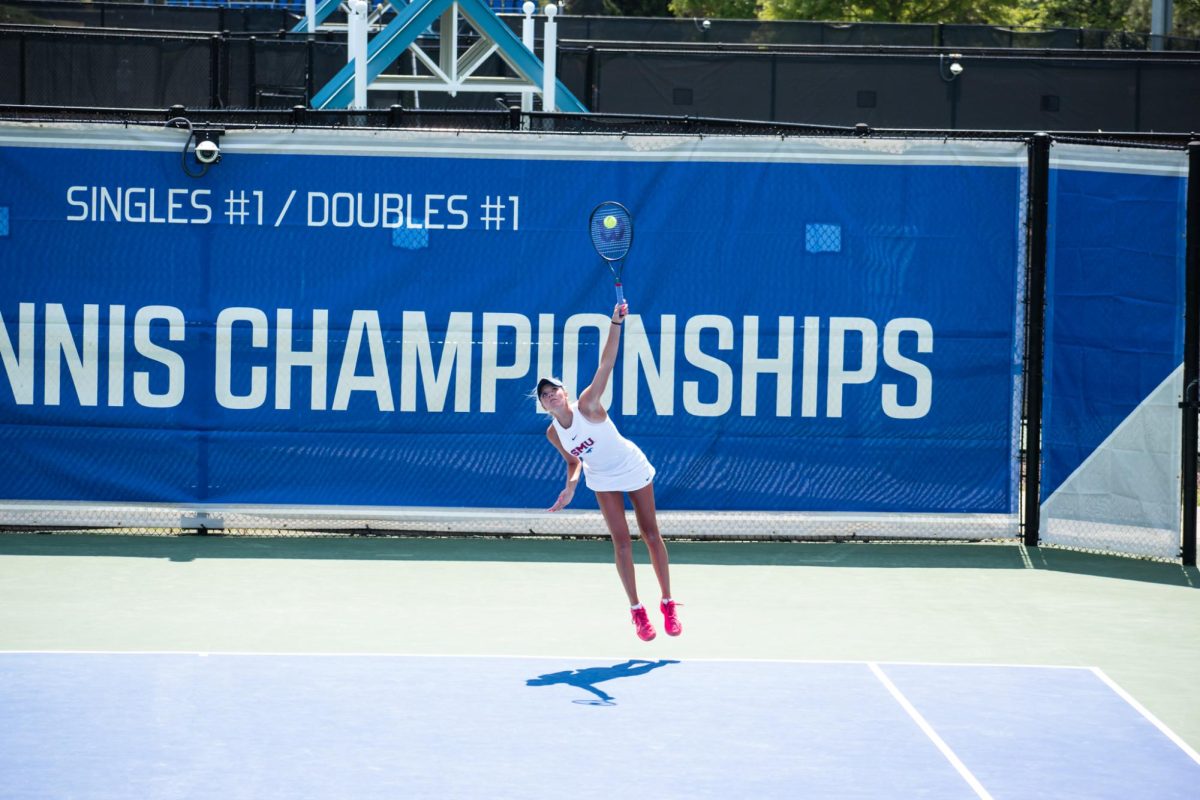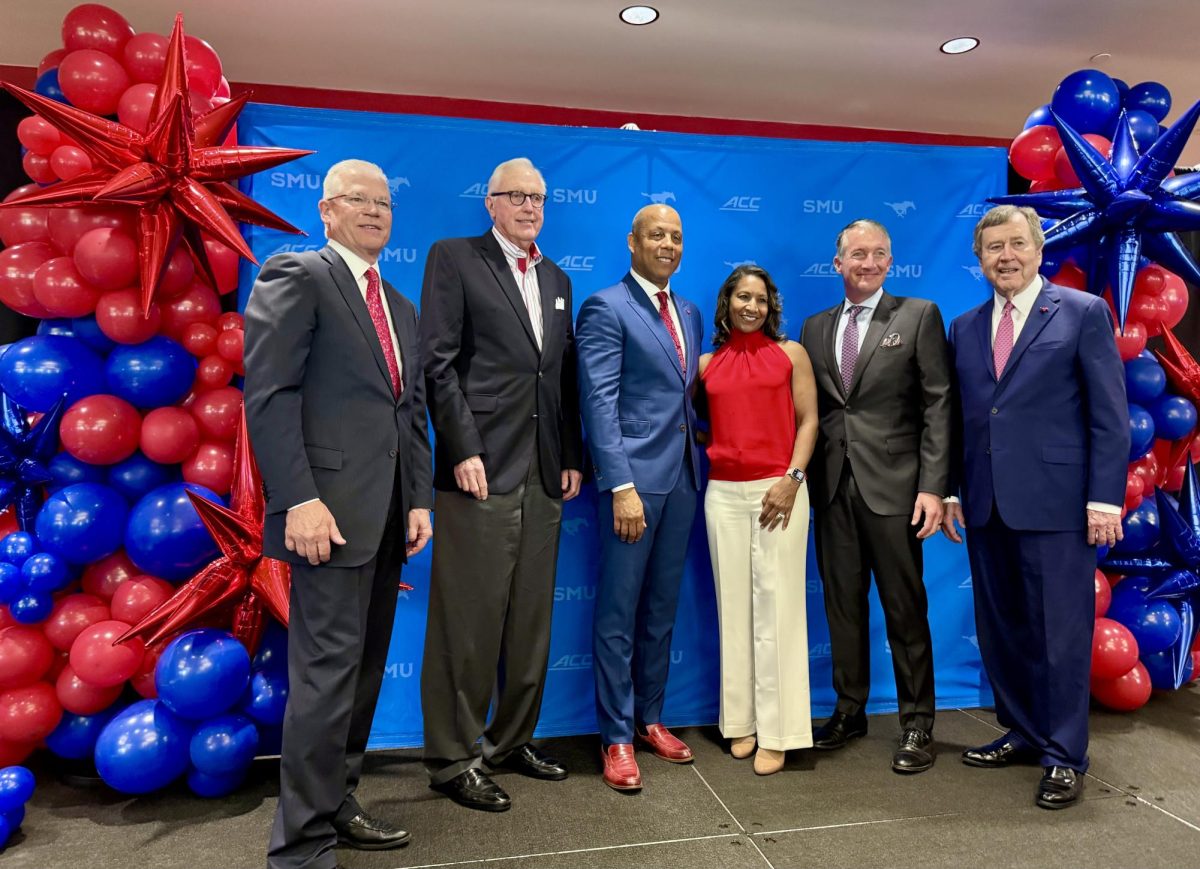A man in head-to-toe SMU gear with a beaming smile walks into Fondren Library. He stands taller than the average student. And he’s a few years older. But he seems right at home on the SMU campus. This man is Gordon Welch. He attended SMU from 1977-1981 and played as a forward on the men’s basketball team.
The SMU alumnus is currently employed at McLarens Insurance as a General Adjuster, but reminisces about his days as an athlete on SMU campus.
Welch was nostalgic when talking about his experience as an athlete at a time when SMU basketball was all the talk during the spring semester.
“When I played basketball at SMU there were no Dallas Mavericks,” Welch said. “When football ended and the Cowboys stopped playing everybody talked about us.”
Welch recalls a rich athletic culture at SMU, one he believes hasn’t been the same since the SMU “death penalty,” a coined term referring to the penalty the NCAA placed on the SMU football program in 1987. When the program was caught paying some of the players, SMU was forced to cancel their 1987 and 1988 football seasons.
“We had the support of the administration, and we had the support of the faculty,” Welch said. “I think the death penalty killed that.”
Welch’s making it through the rigorous SMU curriculum while enduring the commitment of collegiate sports was also tarnished by the negative reputation of some athletes cheating to get ahead in classes.
“There is a lot of prestige and honor to have that diploma on the wall,” Welch said. “And not because I could dribble a basketball but because I earned it to get out of here.”
Focusing on his studies, Welch was able to excel in his education and graduated in four years. Looking back, he believes the education was the most satisfying thing about SMU.
But not everything was perfect. From a social perspective, as an African-American, Welch found it was difficult to socialize with other black students because he didn’t see them.
“You saw the athletes but you never saw the rest of the people,” Welch said. “[The population of black students was] so small and so infrequent that you kinda knew you were insulated.”
Despite the imbalance in racial representation on campus, Welch was never fazed. The lack of diversity mirrored the life he lived before college.
“I was used to being in a predominately white atmosphere, it was not a big change for me, SMU was basically an extension of my life,” Welch said. “I lived in Turkey with eight black students in the entire high school from freshman to senior and one of them was my brother.”
The SMU alumnus said he is pleased that current black students at SMU have a different experience because of technology, providing a connection between minority students on campus that don’t see each other on a daily basis.
Focusing back on his athletic journey, Welch found it easy to transition from college to the workforce and gives credit to being an athlete. He explains that the competitive nature instilled in you as an athlete translates well into the competitive nature of the work place.
“As an athlete you are torn down and built back up so you understand what it is to be torn down,” Welch said. “How you react and how you move forward and that’s the difference, you got your shot blocked, do you stop going? No, and that’s what athletics does it keeps us going.”
Even those close to Welch acknowledge the correlation between his perspective on sports and his perspective on life. Retha Kimbrough Welch, his wife of almost 13 years, credits Welch’s attentiveness to details and perfectionist work ethic to his past in sports.
“It’s not just a game for him, it is making something work, and work well,” Retha said. “He continually works at perfecting whatever he is doing whether it is work or hobbies.”
Welch also strongly advocates for more recognition for the alumni athletes of SMU, who he feels have been overlooked.
“Recognize alum that have come through here that aren’t the Erick Dickersons or the Jerry LeVias’, there are a lot more of us than there are of those who give to the school,” Welch said. The idea of his physical sacrifices, made on the Moody Coliseum court, left unnoticed leaves him with a sense of neglect. “I left blood, sweat and tears out there, tell me thank you.”
The same smile spreads across Welch’s face at the end of our discussion as did in the beginning. His SMU pin shining on his SMU hat as he walks back toward his car –his legacy shining with it.





